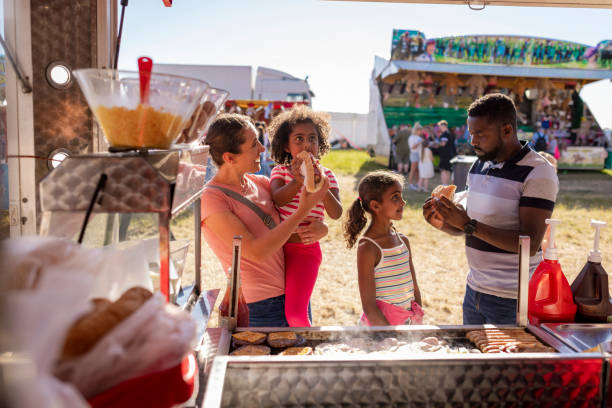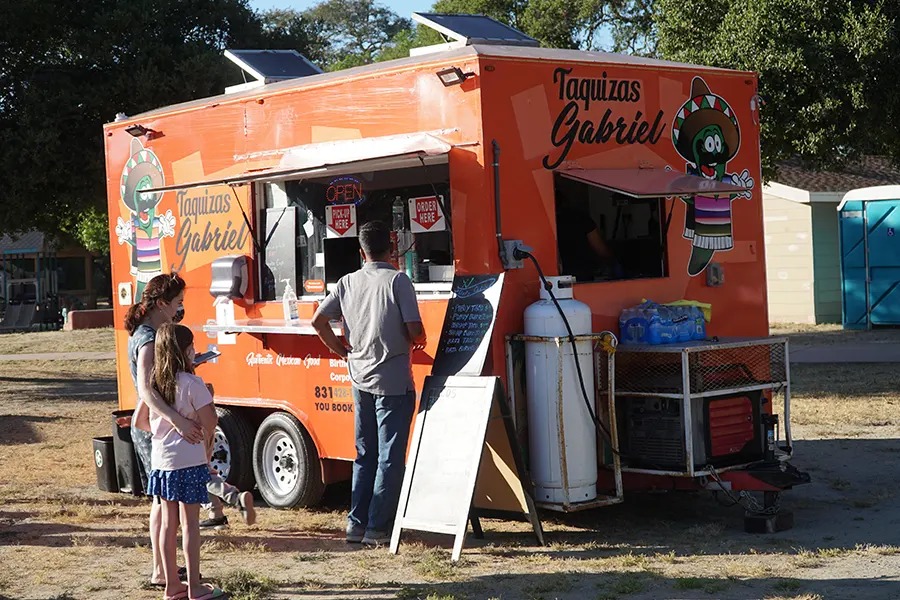A indústria de alimentos é um espaço dinâmico cheio de oportunidades emocionantes. Enquanto os restaurantes tradicionais de tijolo e argamassa têm sido os que ospiram os aspirantes a restaurantes, O negócio de reboques de comida está rapidamente ganhando popularidade. Oferecendo custos mais baixos de inicialização, mobilidade, e liberdade criativa, Trailers de comida fornecem uma maneira fantástica para os empreendedores invadirem a cena alimentar.
Se você já sonhou em possuir um restaurante, mas se sentiu intimidado pelas altas despesas, Então iniciar um negócio de reboque de comida pode ser a alternativa perfeita. Se você é um chef experiente, um foodie apaixonado, ou um empreendedor experiente, Este modelo de negócios oferece inúmeros benefícios.
Neste artigo, Vamos explorar 15 Razões para investir em um negócio de reboques de alimentos, incluindo eficiência de custos, flexibilidade de mercado, vantagens de marca, e sustentabilidade.
Custos de inicialização mais baixos em comparação aos restaurantes tradicionais
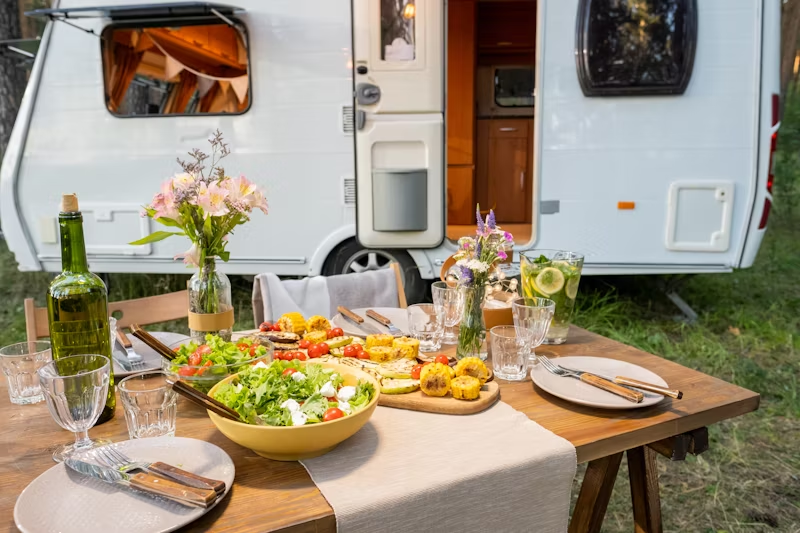
Uma das maiores barreiras para entrar na indústria de restaurantes é o custo esmagador. A abertura de um restaurante de pleno direito requer investimento significativo em imóveis, permissões, equipamento, e pessoal. Em contraste, Quanto custa para iniciar um trailer de comida? A resposta varia, Mas é significativamente menor do que abrir um restaurante.
Dependendo do tamanho, equipamento, e personalização, Um trailer de comida pode custar em qualquer lugar entre $15,000 e $100,000, um novo ou usado são diferentes um com o outro, enquanto uma startup de restaurante pode variar de $200,000 para superar $1 milhão. Trailers de alimentos eliminam a necessidade de alugar ou comprar propriedades comerciais caras, Reduzir os riscos financeiros e tornar o empreendedorismo mais acessível.
Flexibilidade em localização e mobilidade
Uma das maiores vantagens de um negócio de reboques de alimentos é a capacidade de se mover. Ao contrário dos restaurantes tradicionais que estão ligados a um local fixo, Trailers de comida podem ir para onde estão os clientes.
- Existe um festival local ou mercado de agricultores? Você pode configurar seu trailer lá.
- Não obtendo tráfego de pedestres suficiente em um ponto? Mudar para outra área.
- Quero testar diferentes bairros? Um trailer de comida permite que você faça isso sem se comprometer com um contrato de longo prazo.
Essa flexibilidade permite que os empreendedores se adaptem rapidamente à demanda, tendências sazonais, e áreas de alto tráfego, em última análise, maximizando a lucratividade.
Liberdade culinária criativa
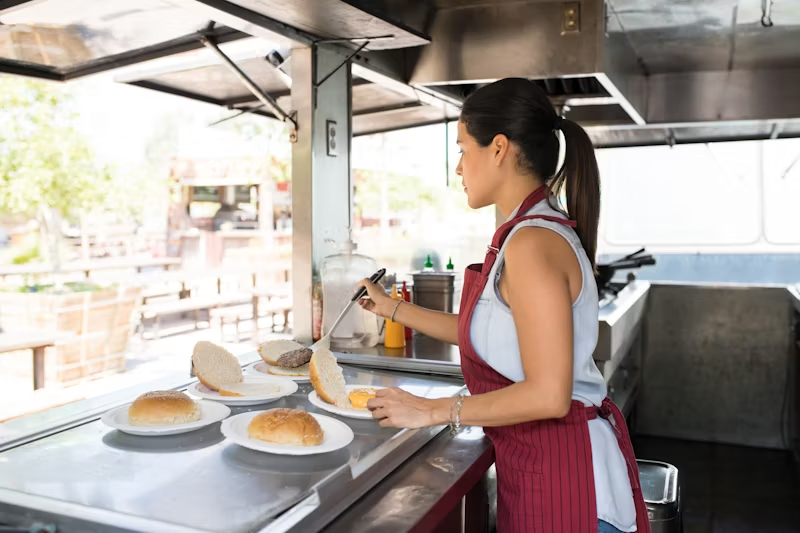
Um trailer de comida dá aos chefs e empreendedores a liberdade de experimentar sabores e conceitos únicos. Ao contrário de grandes cadeias de restaurantes que devem aderir a menus rigorosos, Os proprietários de reboques de comida podem inovar continuamente com base nas preferências dos clientes.
Quero apresentar um prato sazonal? Vá em frente. Pensando em testar uma ideia de cozinha de fusão? Você pode iniciá -lo sem a burocracia corporativa. Iniciar um negócio de reboques de alimentos permite que você transforme sua paixão em realidade e se destaque na indústria de alimentos lotados.
Engajamento direto do cliente
Executar um trailer de comida significa interagir diretamente com os clientes todos os dias. Este nível de engajamento ajuda a construir relacionamentos fortes, Aumentar a lealdade à marca, e receber feedback imediato.
Em um ambiente de restaurante tradicional, Chefs e funcionários da cozinha raramente têm a oportunidade de conhecer seus clientes. Mas em um trailer de comida, Você pode servir suas criações pessoalmente, Assista às reações das pessoas, e ajuste seu menu de acordo. Essa conexão direta pode tornar sua empresa mais gentil e centrada no cliente.
Despesas gerais reduzidas
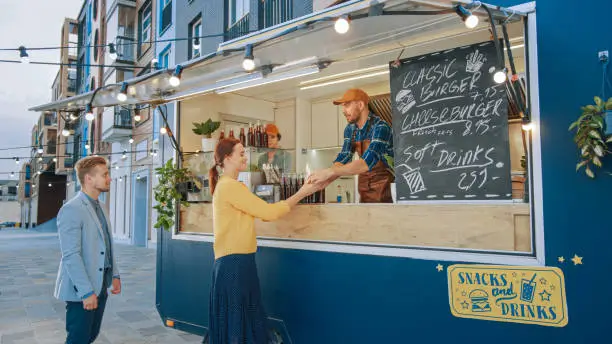
Os custos indiretos de um restaurante incluem aluguel, utilitários, seguro, e salários dos funcionários, que pode aumentar rapidamente. Um trailer de comida reduz significativamente essas despesas:
- Sem altos pagamentos mensais de aluguel
- Contas de serviços públicos mais baixos
- Menos funcionários precisavam executar a operação
Cortando esses custos, Os proprietários de reboques de comida podem alocar mais fundos para o marketing, Melhorias de menu, e crescimento dos negócios.
Oportunidade de renda passiva
Possuir um negócio de reboque de alimentos não significa apenas vender comida durante o horário de funcionamento - também pode gerar renda passiva. Muitos proprietários de reboques de comida encontram fluxos de receita adicionais através de eventos de catering, festas particulares, e funções corporativas.
Por reservar eventos com antecedência, Você pode garantir a renda mesmo antes de abrir seu trailer para o dia. Isso torna o negócio mais financeiramente estável e lucrativo a longo prazo.
Visibilidade aprimorada da marca e marketing
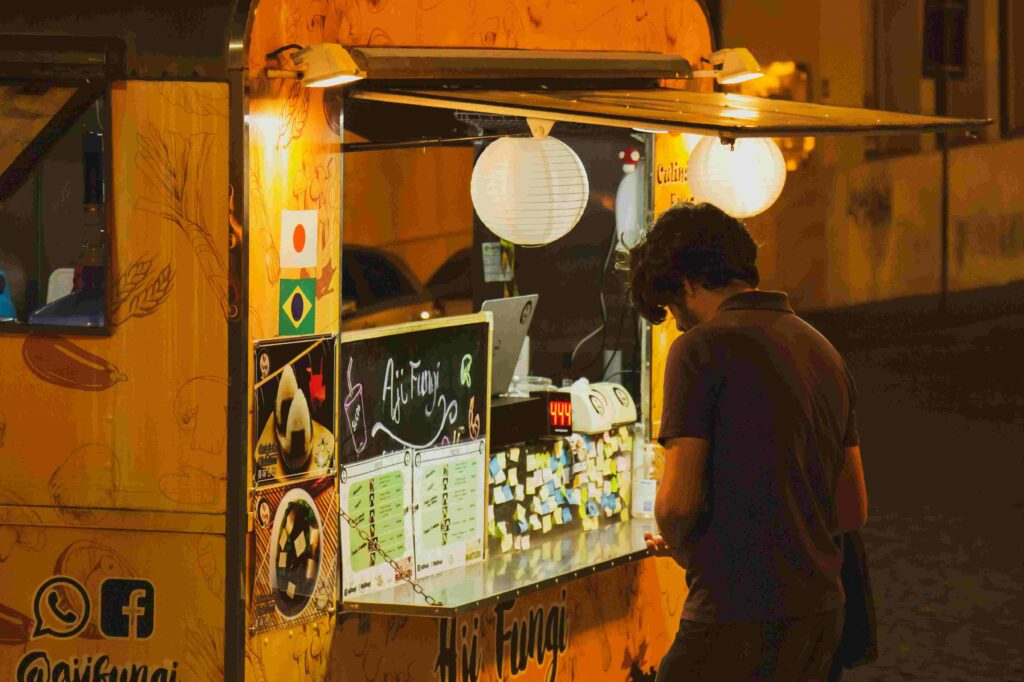
Um trailer de comida é um anúncio móvel para o seu negócio. Ao contrário dos restaurantes tradicionais, que depende do tráfego de pedestres e marketing digital, Reboques de comida criam visibilidade instantânea onde quer que eles vão.
- Social mídia amigável: Um trailer de comida lindamente projetado pode atrair instagrammers e blogueiros, Ajudando a espalhar a palavra online.
- Marca atraente: Seu trailer atua como um outdoor, chamando a atenção e a curiosidade dos transeuntes.
- Marketing boca a boca: Os clientes satisfeitos têm maior probabilidade de compartilhar suas experiências com amigos e familiares.
Essa promoção orgânica pode melhorar significativamente o conhecimento da marca e atrair clientes fiéis.
Potencial para altas margens de lucro
Trailers de comida têm o potencial de gerar impressionantes margens de lucro. Com despesas gerais mais baixas, custos reduzidos da equipe, e vendas diretas ao cliente, Os proprietários de reboque podem manter uma parte maior de sua receita.
Por exemplo, Um trailer de comida bem administrado pode gerar $5,000 para $20,000 por mês em receita, Dependendo da localização, Preço do menu, e demanda do cliente. Itens de alta margem, como bebidas especiais, Sanduíches gourmet, e sobremesas premium, pode aumentar ainda mais os lucros.
Contribuição para a comunidade e a cultura
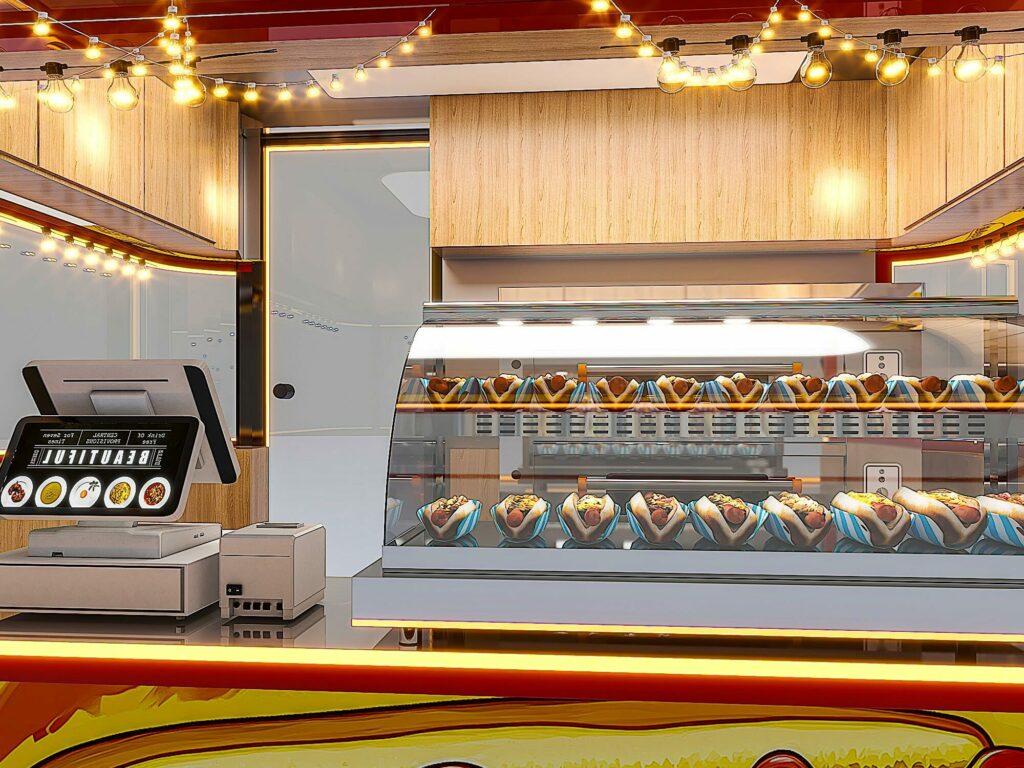
Trailers de comida geralmente se tornam amados partes de suas comunidades. Eles contribuem para a cultura alimentar local, oferecendo diversas opções culinárias, Apoiando agricultores e fornecedores locais, e participando de eventos do bairro.
Muitas cidades e cidades adotam festivais de reboque de comida, onde os fornecedores mostram seus sabores únicos e se envolvem com os clientes em um animado, atmosfera de boas -vindas. Essa conexão com a comunidade ajuda a criar uma base de clientes fiel e torna os negócios ainda mais gratificantes.
Oportunidades de expansão dos negócios
Se o seu negócio de reboque de comida for bem -sucedido, Existem muitas possibilidades de expansão:
- Investindo em reboques adicionais para servir a vários locais
- Transição para um restaurante de tijolo e argamassa
- Oferecendo serviços de catering para eventos e casamentos privados
- Vendendo mercadorias de marca ou produtos alimentícios embalados
A escalabilidade de um negócio de reboque de alimentos o torna um ponto de partida fantástico para quem quer crescer na indústria de alimentos.
Crescimento pessoal e profissional
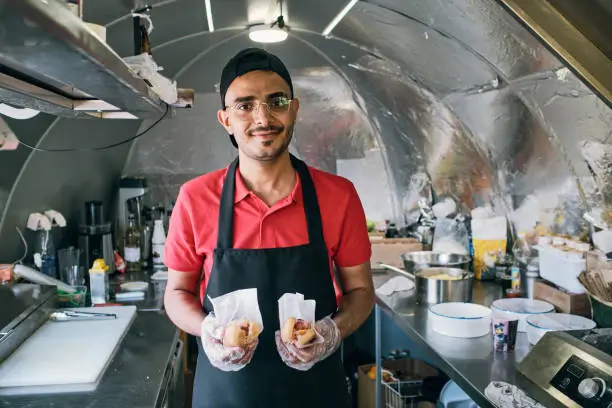
Iniciar um negócio de reboques de alimentos ensina habilidades valiosas em gerenciamento de negócios, marketing, atendimento ao Cliente, e operações. Ele fornece uma experiência prática que pode ajudar os empreendedores a criar confiança e resiliência.
Além disso, Possuir uma empresa oferece liberdade pessoal - você define sua programação, tomar decisões criativas, e controlar seu destino financeiro.
Benefícios ambientais
Os reboques de comida geralmente têm uma pegada de carbono menor em comparação aos restaurantes tradicionais. Eles consomem menos energia, produzir menos desperdício, e requer menos recursos. Muitos proprietários de reboques de alimentos estão adotando práticas sustentáveis, como:
- Usando embalagens biodegradáveis
- Ingredientes de fornecimento de agricultores locais
- Implementação de equipamentos com eficiência energética
A sustentabilidade está se tornando um fator importante nas empresas de alimentos, E um trailer de comida permite que você contribua positivamente para o meio ambiente.
Adaptabilidade às tendências de mercado
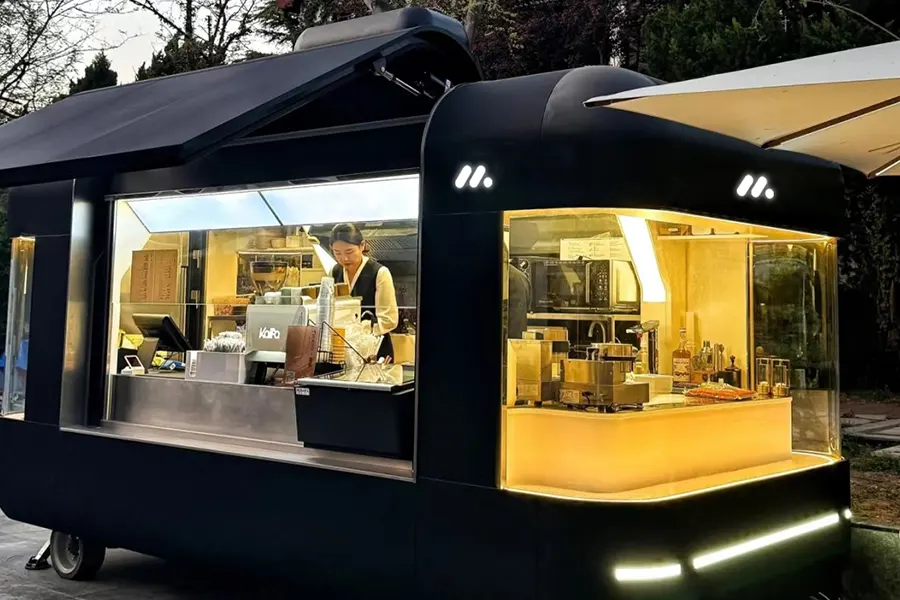
A indústria de alimentos está em constante evolução, com novas tendências emergindo todos os anos. Trailers de comida oferecem flexibilidade para se adaptar rapidamente a essas tendências, seja cozinha à base de plantas, Opções sem glúten, ou pratos de fusão únicos.
Mantendo as preferências do cliente, Um negócio de reboques de alimentos pode permanecer competitivo e relevante no mercado.
Custos contínuos básicos baratos
A administração de um negócio de reboques de alimentos envolve despesas contínuas, Mas eles são relativamente baixos em comparação com os restaurantes tradicionais. Os custos comuns incluem:
- Combustível para mobilidade
- Reabastecimento de ingredientes
- Manutenção e inspeções de rotina
Com planejamento financeiro adequado, Essas despesas podem ser facilmente gerenciadas, mantendo a lucratividade.
Baixo desperdício de alimentos
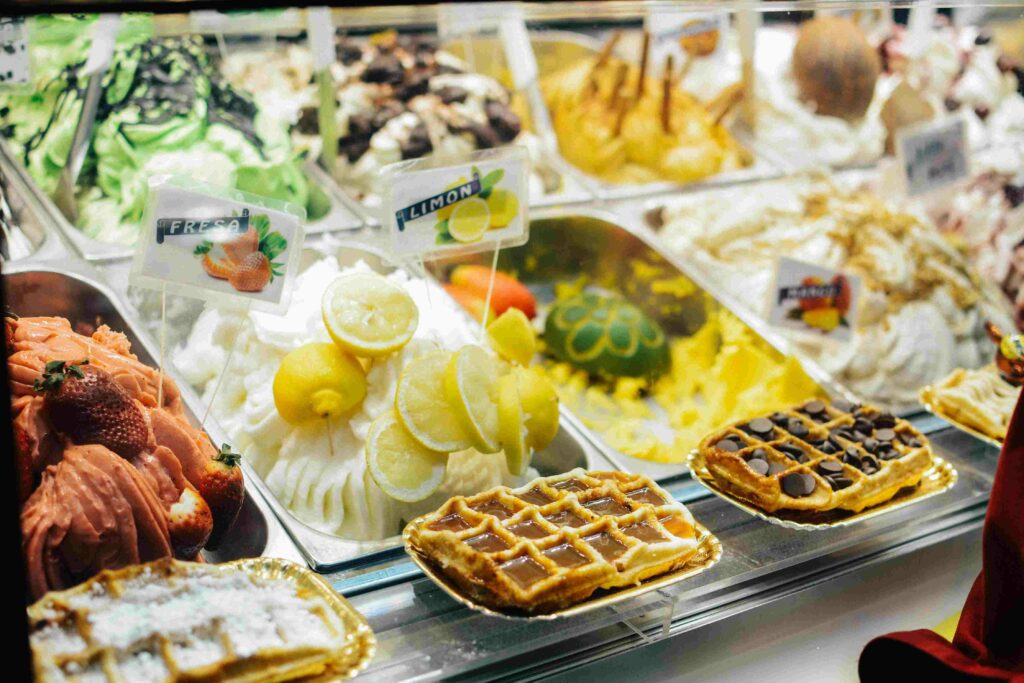
Um trailer de comida permite um melhor controle de porções e gerenciamento de inventário, levando ao mínimo de desperdício de alimentos. Como os reboques operam em menor escala, Os proprietários podem planejar suas compras com eficiência e evitar resíduos excessivos, economizar dinheiro e ajudar o meio ambiente.
Conclusão
O negócio de reboques de alimentos é um empreendimento emocionante e lucrativo para aspirantes a empreendedores. Com seus custos de inicialização mais baixos, mobilidade, Liberdade criativa, e alto potencial de lucro, fornece uma alternativa fantástica aos restaurantes tradicionais. Se você já se perguntou como iniciar um negócio de reboque de comida, Agora é o momento perfeito para explorar esta oportunidade.
Seja você um empreendedor pela primeira vez ou um profissional experiente na indústria de alimentos, Um trailer de comida oferece flexibilidade, rentabilidade, e satisfação pessoal necessária para ter sucesso no mercado de alimentos em ritmo acelerado de hoje.
Você está pronto para lançar seu negócio de reboque de comida? A jornada começa agora!
Perguntas frequentes
O que permite e licenças são necessárias para iniciar um negócio de reboques de comida?
Para operar legalmente, Você precisará das seguintes licenças e licenças (que pode variar de acordo com o local):
- Licença comercial
- Permissão de serviço de alimentação
- Certificação do Departamento de Saúde
- Aprovação de inspeção de incêndio e segurança
- Permissão de fornecedor de alimentos móveis
- Acordo de Comissário (em algumas áreas)
É melhor verificar com o governo local para obter requisitos específicos.
Como encontro os melhores locais para o meu trailer de comida?
Escolher o local certo é crucial para o sucesso. Áreas de alto tráfego, como festivais, Mercados dos agricultores, distritos comerciais, campi da faculdade, e os locais de eventos são excelentes escolhas. Pesquisando a demografia dos clientes e o teste de vários locais podem ajudar a identificar os melhores pontos.
Quão lucrativo é um negócio de reboque de comida?
Um negócio de reboque de alimentos bem administrado pode gerar entre $5,000 para $20,000 por mês, Dependendo da localização, Preço do menu, e eficiência operacional. Com custos indiretos mais baixos do que um restaurante, Trailers de comida têm potencial para altas margens de lucro, muitas vezes excedentes 50%.
Que tipo de comida vende melhor em um trailer de comida?
O itens alimentares mais vendidos são aqueles que são fáceis de preparar, têm margens de alta fins lucrativos, e apelar para um público amplo. Algumas opções populares de reboque de comida incluem:
- Hambúrgueres e sanduíches gourmet
- Tacos e burritos
- Café e bebidas especiais
- Sorvete e sobremesas
- Opções baseadas em plantas ou orgânicas
Escolher um conceito de comida único, mas em demanda, pode ajudar sua empresa a se destacar.

